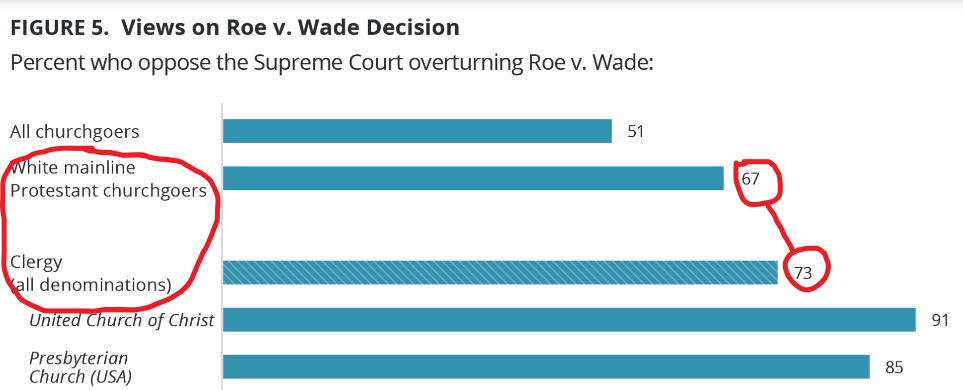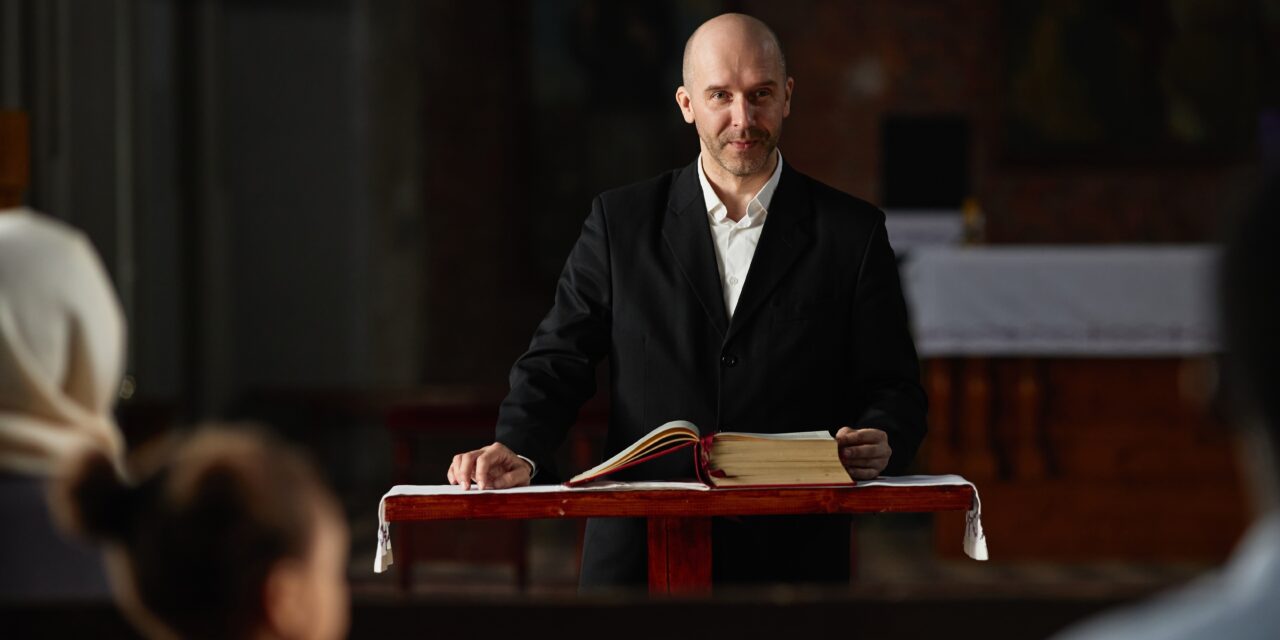A new poll from the Public Religion Research Institute (PRRI) in Washington, D.C. finds that mainline Protestant pastors are significantly more liberal than their congregations by political affiliation and on important social issues.
Specifically, the majority of mainline Protestant clergy identify as liberal at 55% and only 22% report being conservative. This is in stark contrast to those who occupy the pews; 43% of congregants report being conservative while only 23% report being liberal. About one-third of white mainline churchgoers (32%) identify as moderate while only 22% of their pastors do.
The comparative graphs look like this:

The PRRI survey also finds that mainline clergy are more supportive than their congregations of LGBT politics. Ninety percent of mainline Protestant clergy favor pro-LGBT laws while 77% of their congregants do. Seventy-nine percent of clergy support gay marriage while 72% of their flocks. Nearly 70% of mainline Protestant clergy oppose religious citizens refusing to use their creative services in practices that violate their conscience, while 57% of those who listen to them on Sunday mornings do.
Abortion
Mainline pastors are also more likely to be more liberal on abortion than their congregations. Seventy-three percent of mainline pastors opposed the overturning of Roe v. Wade while 67% of mainline churchgoers did.

Political Party Affiliation
In terms of political party affiliation, PRRI reports,
Overall, mainline clergy are much more likely to identify as Democrat than as Republican. About half identify with the Democratic Party (49%), compared to only 14% who identify with the Republican Party. More than one in four clergy identify as independent (28%).
Their congregations are markedly different. PRRI explains, “Mainline Protestant churchgoers in the general population tend to identify more as Republican (36%) or independent (35%), compared to one in four who identify as Democrat (24%).”
PRRI charts these stark pastoral/congregant contrasts here:

America as a Promised Land?
When asked if they agreed with the statement, “God intended America to be a new promised land where European Christians could create a society that could be an example to the rest of the world,” only 12% of mainline clergy agreed while 37% of their congregants did.
Clergy More Open to Switching Faiths
A full 44% of mainline clergy members have thought about leaving their current religious tradition, while only 23% of their congregants have. Only 15% of all American church goers have considered changing faiths.
PRRI reports that most of these clergy members considering leaving their denomination tend to be more conservative in belief and likely unhappy with their tradition’s left-ward drift.
Racial and Socio-economic Diversity
PRRI’s data also shows that mainline Protestant churches are not as racially and economically diverse as they might wish either. Ninety percent of clergy report their congregations are primarily white, while 5% say their congregation is multiracial, only 2% say it is primarily black, and 1% say it is primarily Hispanic or Latino. Only 3% classify their congregations as either working class or poor.
Church More Divided by Politics
Finally, PRRI reports, “Clergy are about twice as likely as white mainline Protestant churchgoers (17%) and about three times as likely as all churchgoers (13%) to say that their church is more divided by politics now than it was five years ago.”
This data shows us mainline Protestant pastors are not becoming more liberal in their politics and ideology because their congregations are desiring it. They are doing so in stark contrast to their own congregations.
This is clearly one of the reasons mainline Protestant congregations are shrinking and losing churches on a regular basis.
Photo from Shutterstock.






